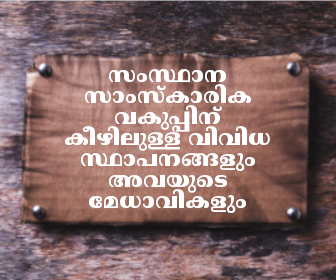CURATOR
KIRTADS
(Category No.251/2018)
Module I: Socio-Cultural Anthropology
1. Meaning and Scope; its relation to other disciplines; Basic concepts: Status and Role,
Social Structure and Social Organisation, Community and Society, Culture, Civilization, The institution, Group, Association.
2. Social Organisation - Marriage: Preferential and Prohibited; Incest; Marriage
Regulations; Marriage payments - dowry and bride price. Family: Types and Functions.
Indian Joint Family System. Kinship: Terms and Usages - Classificatory and descriptive.
Avoidance and Joking relationships; Descent and descent groups. Residence.
3. Economic Organisation: Subsistence system - hunting and gathering, horticulture,
pastoral, agricultural. Modes of exchange: Barter, ceremonial exchange, reciprocity,
distribution, market exchange.
4. Political organization: Stateless societies and States. Patterns of leadership in simple
societies. Legal and other mechanisms of social control. Religion: Magic, religion and
science, totemism, myth, ritual, sacred and profane, rites of passage.
5. Language, Society, and Culture: Socio-linguistics/Ethno-linguistics; Variations in
Speech; Dialectology
Module II: Biological Anthropology
1. Theories of Organic evolution, Lamarckism, Darwinism, Neo-Darwinism.
2. ABO Blood Group system, Rhesus Blood Group System;
3. Human Genetics and Inheritance;
4. Primates; Fossil Evidence and the emergence of man;
5.Race and Racial Classification; UNESCO Statement on Race
Module III: Archeological Anthropology
1. Meaning and scope of Archaeological Anthropology. Old World and New World
Archaeological Traditions
2. Three Age Systems and their corresponding Cultures
3. Stone Age Industries and Stone Tool Technologies; Artefacts, Implements,
Assemblage, Industry, Culture, and Civilisation
4. Dating Methods and their relevance in Archaeology; Relative and Absolute dating;
5. Museum Techniques; Display of Proto-historic, Pre-Historic and Ethnographic
Collections; Conservation and Preservation of Museum Specimens
Module IV: Indian Society and Culture
1. Peasant Societies, definition and characteristics. Conceptual tools in analyzing peasant
societies, Social organization of tradition.
2. Indian village communities: Features, settlement patterns, solidarity. Social Mobility;
Fission and fusion. Jajmani system. Caste and class theories. Varna and Jati. Purity and
Pollution. Concept of Dominant caste.
3. Changes in Indian Village communities due to Industrialization, Urbanization,
Rural-urban continuum.
4. Concept and definition of the tribe; Distribution of tribes in India: Geographical.
Linguistic and Generic classification. Transformation of tribes: Theories of
transformation
5.Tribes of Kerala
Module V: Research Methodology
1. Fieldwork tradition in Anthropology; Ethnography and Ethnology
2. Inductive and Deductive research strategies; Emic and Etic Approaches
3. Techniques of data collection: Interview and Observation;
4. Techniques of data collection: Schedule and Questionnaire, Case Study,
Genealogy
5.Controlled Comparison, Content Analysis, and Interpretation.
Module IV: Theory of Culture
1. Culture: definition, culture traits, culture complex, culture area, age area
2. Theories of Cultural Evolution. Morgan, Tylor, Steward, White, Sahlins, and Service.
3. Theories of Cultural Diffusion and Historical Particularism: Beals, Kroeber,
Wissler. Cultural Materialism of Marvin Harris.
4. Theory of need and institution; Functional Theory - Malinowski. Theories of Social
Structure. Radcliffe Brown, Evans Pritchard, Fortes, Nadel, Leach, Levi- Strauss.
Raymond Firth on social structure and organization.
5. Culture and personality: Ruth Benedict and Margaret Mead; National Character
Studies: Linton, Kardiner.
Module VII: Development Anthropology
1. Concept of Development; Theories and approaches; Sustainable Human
Development; Human Development Index;
2. Development Planning; Rural Development; Panchayati Raj; Land Reforms
3. Tribal Development Administration
4. Concept of Scheduled Tribes, Scheduled area, Scheduled Caste; Backward classes and
minority communities;
5.Constitutional Safeguards for SCs and Sts
Module VIII: Ecological and Medical Anthropology
1. Health, culture, and society: Concepts of illness and disease; Community Health
2. Ethno Medicine; Epidemiology. Culture-Bound Psychological Disorders
3. Medical Pluralism in India. AYUSH, NRHM, ASHA
4. Ecology and Anthropology; Population Ecology; System Ecology; Ethno-ecology
5. Ecology and Society: Hunters and Gatherers; Nomadic Communities; Pastoral
Communities; Island communities; Fishing and Agricultural Communities; Cultural
Adaptation and change.
NOTE: - It may be noted that apart from the topics detailed above,
questions from other topics prescribed for the educational qualification
of the post may also appear in the question paper. There is no
undertaking that all the topics above may be covered in the question
paper












